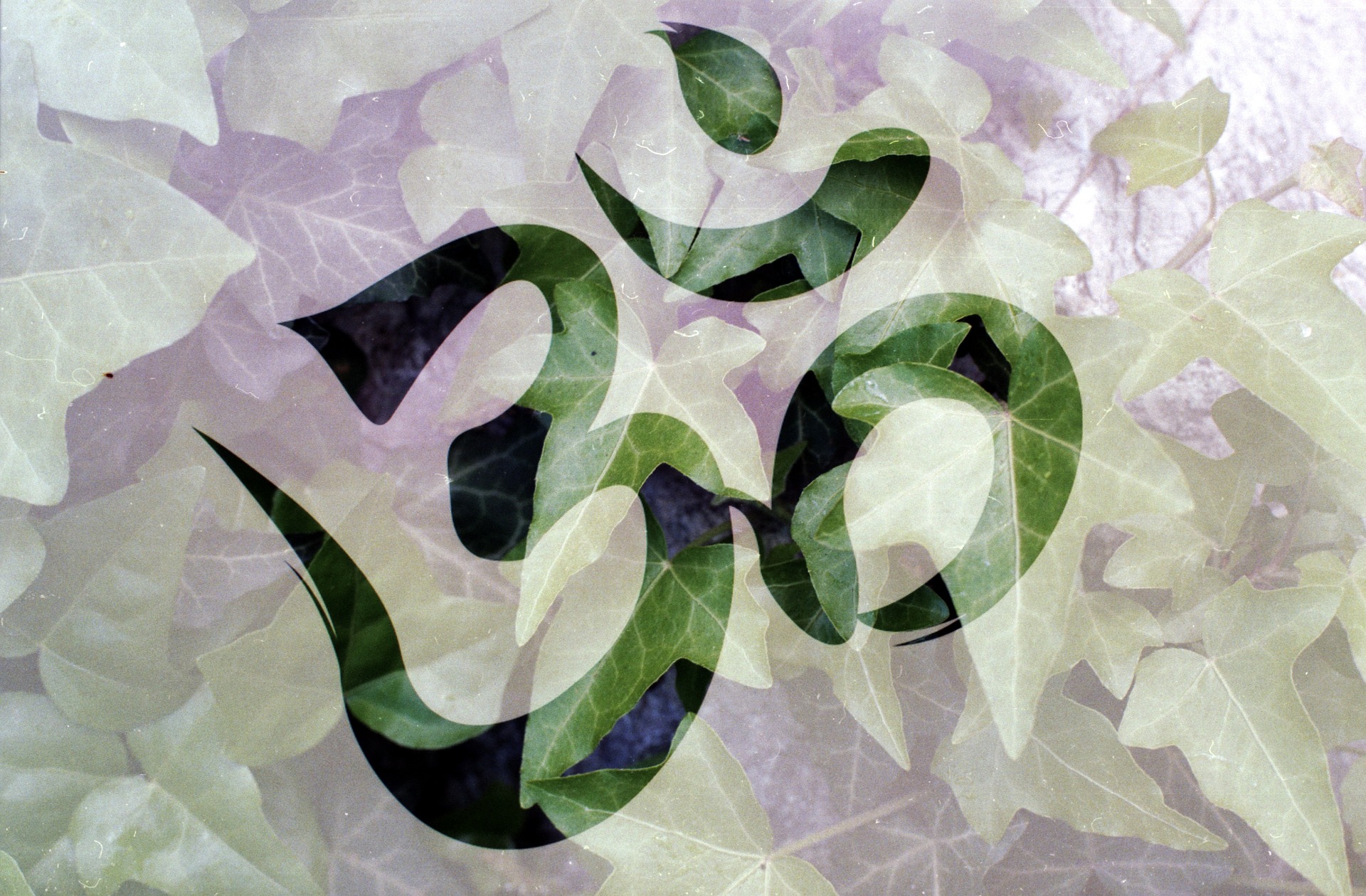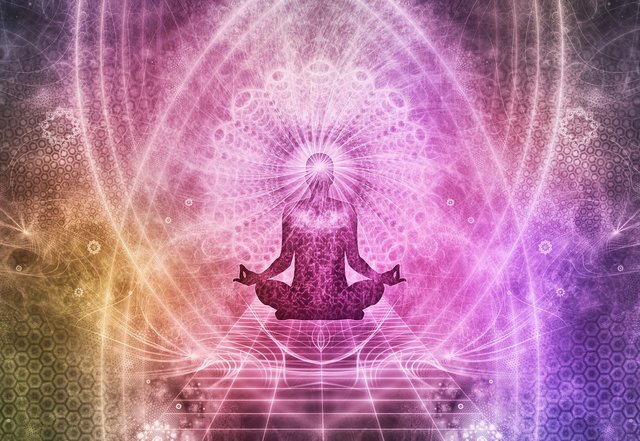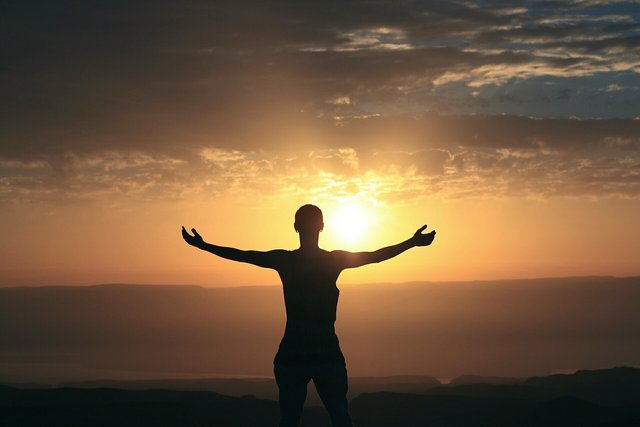Why spiritual practice is more important than ever.
In our modern scientific age, we are surrounded by technological miracles. We can communicate in seconds to people across the globe. Travel which took weeks or even months now takes hours. Our way of life as a species has never been better than now. We are generally healthier, live in far more abundance, and have greater access to the necessities of life than we have at any other point in known history. In the Western world, most people live better than the kings and queens of the Middle Ages and even into the Renaissance.
Then why is it that the world is in so much turmoil? Setting aside the reality that nefarious conspiracies of powerful people exist, what is it that makes us intensely unhappy, generally unsatisfied in our lives, and prone to conflict? What makes us so easy to control?
Carl Jung described a spiritual problem which afflicts most modern humans. This neglect of the spirit within us makes us as a whole more susceptible to suggestion, more insecure, emotionally unstable, and emotionally underdeveloped. As a society, the lack of a spiritual center leads to political and social unrest, war, and the instability of the society due to malnourished morality. This has been seen throughout the ages of humanity, since the very dawn of civilization. War and violence has plagued this planet for a very long time since the ancient traditions were occulted from the majority of the public for the purposes of control.
The revolution of The Secret movie was partially correct in the fact that shadowy figures behind the cloistered doors of temples sought to reign in human consciousness for their own gain, and as such they created the concept of religion to ‘spiritually hobble’ other humans. This is particularly prevalent in the West, going far back to Babylon and Egypt where the true mysteries of the universe were only available to an elite priest class while the general population was given the most convenient information to control them. Over time, humanity was conditioned to believe that individuals were to be subservient to the will of an external god or gods. And that members of the priest class were to be worshiped as either directly divine themselves or those with “divine rights” that superseded all other human rights.
The spiritual problem was further exacerbated by social planners who, while spellbound by the results of scientific inquiry in the fields of industry and medicine, came to believe that the methods of science could be used to engineer society. This resulted in an increase in uniformity and a reduction of the importance of the individual, including any and all focus on the spirit within. Instead, humans are reduced to abstractions: statistical averages and homogenous social units to be managed and manipulated like any other resource. The view that has permeated with the zeitgeist of the modern era is that humans are mere machines that respond to stimuli and nothing more.
On the other hand, the spiritual practice by way of self-exploration, allows individuals to reclaim their humanity, to realize they are something more than a widget in a great machine. An honest spiritual practice ascribes purpose, grants meaning, and empowers the individual. An earnest follower of any spiritual tradition attains high amounts of empathy, for when one understands and can relate to the universe inside of themselves called spirit, one can easily see it and empathize with the same in others. A rigorous spiritual practice teaches, by direct experience, the responsibility and necessity of the golden rule: do unto others as you would have done unto you.
And finally, through the refinement of the spirit by way of sincere practice, the doors to the secrets of the incontrovertible universal laws open, and you will take back your rightful power. ‘Miracles’ will begin to manifest in your life.
So, what is the spirit, exactly?
All the great religious traditions of the world agree on many things, and one of these things is what is called the spirit. The word spirit refers only to the immaterial facets of our humanity (but still definitely exist!) which include our thoughts, our will, and our emotions. Most of our spirit is, as Jung described, “the ignored unconscious mind”. That is, it operates below the level of our conscious awareness, but that doesn’t mean we cannot become aware of the spirit’s machinations behind the scenes.
Even if you do not believe in a Divine or Absolute, you can still benefit from spiritual practice. How is this? In the spiritual pursuit, you begin to truly know yourself in a very intimate way. You begin to control the five senses and the signals you receive from them. Through spirit work, you can consciously make choices to shift your awareness more towards being in the present reality rather than in the labyrinth of your mind’s illusions. Your mind sharpens, and you become more emotionally mature.
In contrast, the soul is something else; many traditions equate it to a sort of life force or consciousness that is a part of the universal consciousness. The spirit is part of the soul. The spirit is that which is aware. Consciousness is differentiated from awareness in all spiritual traditions. Awareness comes from our mind. The soul can simply be seen or thought of as “the unchanging observer within, which is untarnished by anything outside of it like time and thought”. In Vedanta, the soul — our true identity — is described as being “Existence-Consciousness-Bliss.”
So, we have established that humans are a triple being: body, spirit, and soul. Let us focus on spirit for the sake of this conversation.
What is the spiritual crisis?
Simply put, the spiritual crisis is an identity crisis. For too long, we as human beings have believed that we are nothing but the extent of our bodies, and we have been tricked into thinking that we are our egos.
I have identified four major ways in which the spiritual crisis manifests in the world.
Delusions and Illusions.
These are erroneous and/or misguided perceptions of reality, traditionally called Maya. Egotism, selfishness, hatred, greed, lust, anger, and ambition all have their roots in delusion or ignorance of the reality of our being.
Obsession with Power.
When we do not empower ourselves through spiritual practice, we become obsessed with external power and as such unleash our misguided will upon others to fulfill a desperate need in our personal lives. It is this temporary, transitionary control over our external life that is like an addiction.
Needless Fear
We fear old age and death, and identify far too much with the ego since we are not centered on the direct experience of the absolute reality within.
Identity crisis.
We do not understand that the mind and body are temporary things, and confuse ourselves with them. We are already pure, free, and perfectly whole beings. This is undeniably apparent when we behave in ways that are wholesome — nobly, ethically, morally, truthfully, kindly. We all know on some level that this is the truth about ourselves, but in our modern times, we lack the language to express this reality. Spirituality offers a way to discover meaning and truth behind things we already know unconsciously.
My solution: Yoga as a spiritual practice.
Yoga means “to yoke”, meaning, “attaching and identifying with God or Divine”.
Hopefully at this point, no matter what your belief (or lack of) or background, you’ll be asking, “What is the Divine or God?” This is an extremely valid question, and my personal spiritual path requires that I ask it, and not just assume any dogma. There has been so much abuse of spiritual practices through the guise of organized religion and religious thinking, that it’s not erroneous to be skeptical of all things “Godly”. The abuses of humans by humans in the name of religious ‘truths’ is a truly horrible thing, and all circles back to the mis-identification of self and what Divine actually IS.
I’ll start by telling you what I understand, through personal and direct experience, what God is NOT. God is not a temperamental sky daddy floating on clouds somewhere in the heavens meting judgements of good and evil upon us all. God is not the gatekeeper of eternal reward or punishment. God is not a being that demands absolute allegiance. The existence of God is neither proven nor disproven by science. While modern science has many merits and advantages, Divine cannot be proven or disproven by objective, externally empirical science, as it only detects the physical aspects of ourselves. Internal science is another matter, as an inward philosophical inquiry very similar the scientific method has been very valuable to me in determining what is real and what is not throughout all my subjective experiences.
It is the aim of yoga (and all other spiritual traditions around the world) to become identified with Divine, or as it has been called, “the absolute”. This process sheds illusions called “maya”, which can also be described psychologically as our expectations, illusions, and delusions based on social or learned conditioning.
In short, the aim of a spiritual tradition is to begin to see what this reality is. This practice has been lost, particularly in the West, for a very long time. Corruption of the teachings of Jesus and early Christian works (Gnostic traditions), has created another system of human mind control in religion. During the renaissance, we shed some of the illusions of this system of control. As such, I cannot say that I am against science, as it is necessary to see part of the absolute reality. In fact, I believe that sciences and the scientific method are to be used hand in hand with any spiritual tradition in order to clear the spirit of its afflictions.
Yet, in our modern world and all of its scientific progress, which is of itself has been good for us as a species, we have forsaken the spiritual traditions of the past. These traditions are generally described as four types in Vedanta, or the 4 paths of yoga, each being suited to different temperaments of the individual. These are:
Karma Yoga: The yoga of action.
A path primarily fit for those of an outgoing or extroverted nature, it purifies the spirit by teaching you to act selflessly, without thought of gain or reward. By detaching yourself from the fruits of your actions, you learn to sublimate the ego.
Bhakti Yoga: The yoga of devotion.
This is the path of devotion or divine love. The Yogi is motivated by the power of love and sees God or Divine as the embodiment of love.
Raja Yoga: The yoga of physical and Mental Control.
This path seeks control over the senses and thought by the means of meditation and restraint.
Jnana Yoga: The yoga of knowledge or wisdom.
The spiritual aspirant of Jnana yoga tradition takes the philosophy of Vedanta to use the mind to inquire into their own nature.
Swami Vivekananda once said that any path (or a combination thereof any/all of the four) of yoga will get you to spiritual freedom, but in this modern age, he suggested the special emphasis should be laid on karma yoga. Personally, I combine the practices of Karma and Jnana yoga, with a little Raja mixed in. And at rare times (since I have an aversion to directly worshiping a god-figure), I utilize Bhakti yoga to let loose my heart and realize compassion within myself.




What a detailed post, more eyes need to be on this! Followed and resteemed. I haven’t found explanations on meditation and spiritual exercises that build up from the history to benefits to practice all in one post. My blog also focuses on meditation and spiritual exercise, check it out and if it interests you please follow along. Best!
I have followed you. thank you for your kind words!
Nice post! I'm also a big fan of vivekananda, though I tend to study more contemporary teachers lately.
A spiritual revolution is what this world needs right now, without it we may well doom ourselves at the rate of technological advance. There is a subtle growth happening, but most people's focus is elsewhere.
The kingdom of heaven is within, yet as a collective we generally try to avoid looking that direction. Truth/God should be the highest value in our lives
Followed, we have a nice little spiritual community growing here
Word. Happy to hear all this here!
I will be posting a series of simple meditations that are very available for atheist/sceptics to follow.
With pure (not fear driven) logics, its very easy to deconstruct the veils that seem to cover that...indescribable alive presence/spirit.
I work as a meditation teacher in Sweden, the worlds most atheistic country :)
So I have been carefully shaped to reveal this essence to people with a that mindset.
Im happy to have discovered steemit now and hope to see more from you guys!! :)
Awesome man, I was atheist/agnostic until a few years ago and now I am all in on spirituality/consciousness. My highest aspiration is truth and I'm blogging about my journey and what helps me. My meditations aren't quite the norm, but they work wonders for me. Glad to have you here brudda!
Hi, I have followed you!
Great!
I honestly hope you will enjoy your findings ;)
Thank you for your kind words. I have followed you back. And yes, I agree. This is a nice community of spiritual people we're collecting here <3
@becomingwhtur I love how you explained what God is NOT! I think that justifies it's own 'mini post'. Thankfully I wasn't raised to have 'the fear of God' but I have run into many people who are literally traumatized by the things they were told in church as children. It's truly sad...
And I agree that a sincere practice opens the doors to the secrets of the incontrovertible universal laws allowing one to take back their rightful power. This has been my experience and the core of what I will be sharing here on steemit.
Great post, I look forward to more!
@robinlight-cbd
Thank you so much for that. I think at some point I will create a post about God, spirit, and soul -- explaining what they are without all the religious fluff. I have another post here that sort of gets into what the 'soul' is: https://steemit.com/yoga/@becomingwhtur/the-identity-crisis-of-humanity
Please enjoy, and thanks for the follow.
Very cool, nicely written post ☺ good to know there is truth seeking along well guided paths happening.
Devotion doesn't necessarily require a god figure, simply the embodiment of the force one is looking to unify with ones being.
For purposes of practicality the devotional aspect is often pictured as a being similar to oneself- this way we are able to subconsciously understand how to actualize the energy into our lives, through ourselves. ☺